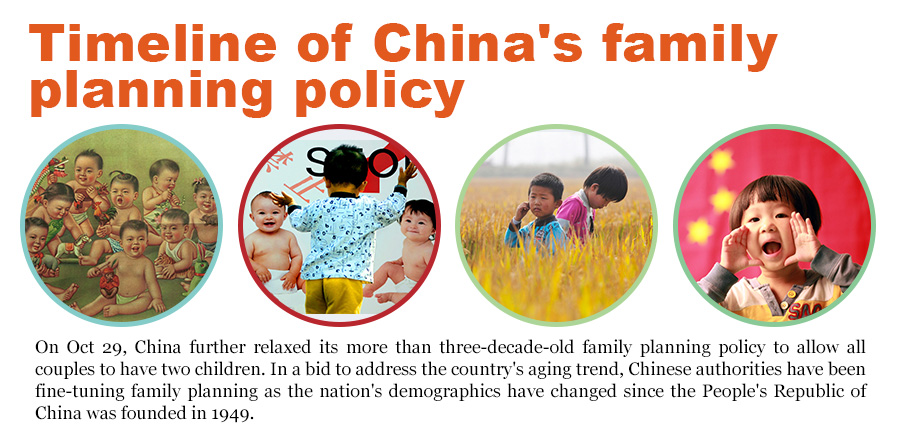China's 13th Five-Year Plan to unleash more opportunities for global development
(Xinhua) Updated: 2015-11-09 09:59BEIJING - A new five-year national socioeconomic development plan to be released by China, which will charter an explicit blueprint for the country's development over the next five years, will also provide more opportunities for the development of other countries.
China's policymakers are compiling the 13th Five-Year Plan (2016-2020), and the proposal on the plan was adopted at the Fifth Session of the 18th Communist Party of China (CPC) Central Committee, which ended in Beijing on Oct. 29.
The proposal sets a target of "maintaining medium-high growth," highlighting the ideas of innovation, coordination, green development, opening up and sharing to fulfill its goals.
As China is the largest developing nation and the second largest economy in the world, any major development in the formulation of a new socioeconomic policy by China will definitely arouse worldwide attention.
Countries across the globe are looking forward to strengthening cooperation with China, so as to share more dividends from the Asian giant's reform and development.
Within the context of increasing economic globalization and world multi-polarization, the Chinese people, under the leadership of the CPC, have made remarkable achievements in development.
China's development has been gradually integrated and interwoven with the rest of the world, while the world's development also goes with the Chinese people's dream for a better future.
The new plan puts innovation on the top of China's development ideas over the next five years, which shows its courage and determination to transform the development mode as the Chinese economy is adjusting to a "new normal" state that features lower growth pace but higher efficiency and quality.
"Development must rest on the basis of innovation," the proposal said.
Driven by innovation with first-mover advantages, allocation of labor, capital, land, technology and management will be focused on stimulating entrepreneurship, so that new technology, industries and business models will prosper, according to an outline of the new plan released to news media.
At a time of economic globalization, China's innovation and development have created more opportunities for the rest of the world.
Overseas experts say other countries will benefit over the next couple of years from China's innovation and development strategies, including streamlining administration and delegating power to lower levels, setting up free trade areas, and implementing the Internet Plus program of action.
"In China's case, the growth success over the last 30 or 40 years has been a combination of real innovation and technology," said Joseph Foudy, clinical associate professor of economics at New York University.
"In the long run, almost all of the growth really has to come from smarter processes in companies and better technology," he added.
Meanwhile, China also stresses green development in the 13th Five-Year Plan, indicating that the country has made a right choice in both boosting development and protecting the mother nature.
As an important developing country, China has long been committed to pushing forward the global climate talks and has kept its promises to emission reduction, playing a key role in fighting global warming.
Under a program of action submitted to the United Nations in June, China aims to hit the CO2 emissions peak by around 2030 and slash CO2 emissions per unit of the GDP by 60 percent to 65 percent from the 2005 level.
This aim shows that China has the courage to take on the burden as a responsible big power.
Over the next five years, the international community will still be looking forward to China's sustainable development, hoping that the country will serve as an engine for the world economic recovery.
In the meantime, China will further integrate into and achieve win-win results with the rest of the world.
Just as Chinese President Xi Jinping has put it, by injecting fresh vitality into and bringing more opportunities for common development with other countries, China's development will undoubtedly be involved in the trend of world development.
- Heavy smog to linger until weekend
- More than 250 telecom fraud suspects returned from Indonesia, Cambodia
- Most couples want two children, top health official says
- Smog set to tighten grip on northeast
- Washington 'showing anxiety in stance adopted toward Beijing'
- Colleges lag in overseas outreach
- Xi presses reform, innovation
- Debate lingers over impact of meeting
- Competitive walking the new cult of urbanite in China
- Xi-Ma meeting turns historic page in cross-Strait relations: official







